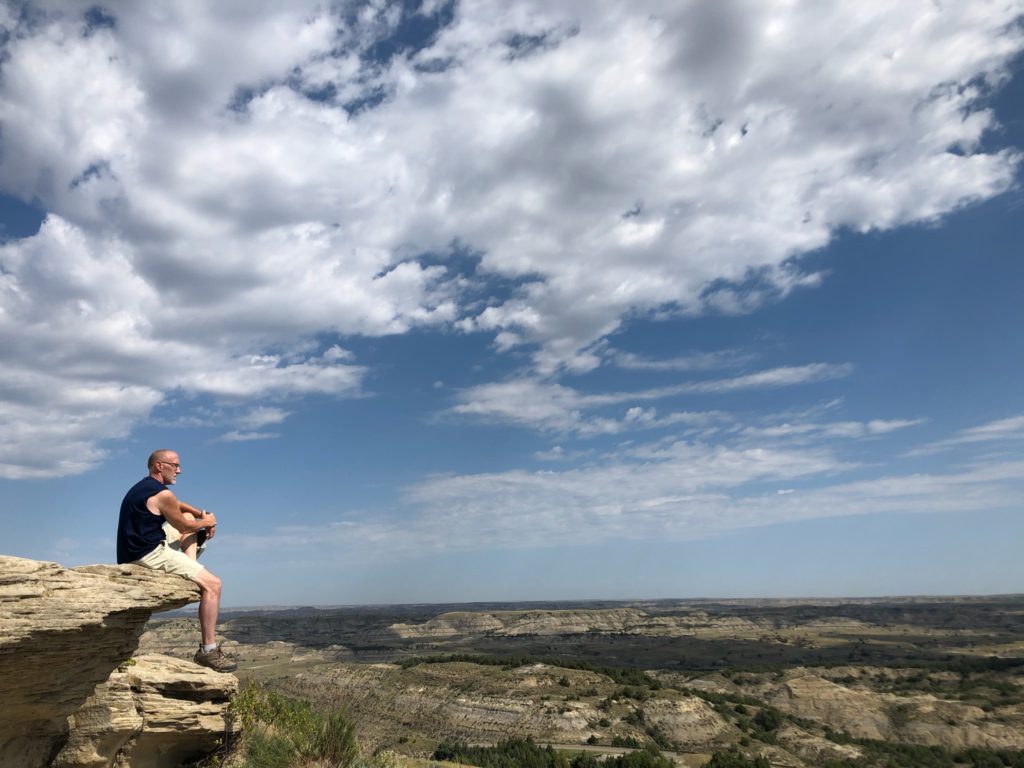Category: Miscellaneous (Page 2 of 10)
I can’t breathe without offending someone.
Literally.
And neither can you.
I breathe in the wrong direction. I breathe at the wrong time. I breathe from the wrong distance. I breathe with my face covered. I breathe with my face uncovered.
I can’t breathe without offending someone.
I can’t live if I don’t breathe.
I can’t live without offending someone.
Welcome to the process of reopening from the coronavirus lock-down.
Face it: we’re all going to offend someone, multiple someones, multiple times, every day. The fantasy of living with others in non-offense is gone.
If I’m masked-up, I automatically eliminate and exclude some who have trouble hearing. My voice is muffled by my mask; they cannot see my lips. My mask says to them, “You don’t matter. I care more about myself or other things or other people than you and your participation.”
If I’m unmasked, I automatically eliminate and exclude some who are in a high-risk group for one reason or another, or are fearful. My unmasked face says to them, “You don’t matter. I care more about other things and other people than you, your health, and/or your feelings.”
So I have to breathe. I have to breathe out my offense at being tagged as offensive, my defensiveness, my frustration, my explanations, my exhortations, my demands, my opinions, my view of “the facts.” I must breathe out my offense at being offensive. I have to breathe in the Holy Spirit’s presence; His love, joy, peace, patience, kindness, goodness, faithfulness, gentleness and self-control.
I have to breathe not just air, but humility, because I am going to offend someone. I don’t want to, but I won’t be able not to offend someone. My breathing offends; so my being offends.
How can we ever navigate these treacherous waters of re-opening?
“Not by might, nor by power, but by my Spirit, says the Lord of hosts.” Only a God-filled people will find a way to be together, overcoming inevitable offenses with inexhaustible grace. Only a God-filled people will find a way to live together in love, service, unselfishness, and other-centeredness … while still finding a way to breathe.
This is our moment. Now is the time. Either we prove able to be the church or we will show what we really are.
Our local church family was unable to gather on Sunday, March 15 for worship due to the local conditions related to the coronavirus crisis. Here’s the message I shared via video with them on this odd Lord’s Day.
May the Lord give us confidence to live intentionally and faithfully and missionally as His people in these strange days.
Not long ago I asked you to consider the two most important minutes of your life—the one directly behind you and the one laying immediately before you. I want now to encourage you to take charge of what may be the two most neglected minutes of your life—the first and last minutes of each day.
I am not referring to 12:00:00-12:01:00 A.M. or to 11:59:00-11:59:59 P.M. I mean your first waking minute of consciousness and the last minute of wakeful consciousness. Leave the minutes of sleep to God; they are safe with Him (Psalm 121:2-3). For now leave the minutes of consciousness engagement with the world to God; He’s got those too (“My times are in your hand,” Psa. 31:15a).
What are you currently doing with the first and last minutes of each day God gives you on this earth? I remind you that it is your choice and within your power to decide how to spend those 120 seconds. I suggest they hold a strategic high ground, ground that we be giving away to other influences; and this at our own peril.
Take that first minute of the day, when you first become aware of consciousness. What do you do with those sixty seconds? Decide whether to roll over and sleep some more? Flail away at your alarm clock while muttering curses over it? Complain? Wish for something else? The first moments of the day help determine what the remaining minutes of the day will be like between your ears. Forty-six percent of Americans say they check their phones before they even get out of bed. It is up to 61% within the first five minutes of the day. Thirty-eight percent of Americans turn the TV on immediately upon waking up. And that doesn’t factor in other powerful influences like radio, music, the Internet, etc.
The phrase “in the morning” is found ten times in the book of Psalms in the ESV. Here’s a sampling:
- “LORD, in the morning you hear my voice; in the morning I prepare a sacrifice for you and watch.” (Psalm 5:3a)
- “I will sing aloud of your steadfast love in the morning.” (Psalm 59:16a)
- “But I, O LORD, cry to you; in the morning my prayer comes before you.” (Psalm 88:13)
- “It is good to give thanks to the LORD, to sing praises to your name, O Most High; to declare your steadfast love in the morning, and your faithfulness by night.” (Psalm 92:1-2)
Okay, I’ll admit—it doesn’t say “first thing in the morning” or “first minute of the morning,” but it does present a consistent commitment to begin each day by meaningful engagement with the Lord.
The Jewish faithful have long taught their children to address God this way with their first words of the day: “Thank you, King living and eternal, You returned me my soul with compassion; I have full trust in you!”
What about that last minute of conscious awareness and thought? What are you doing with those precious seconds?
Consider how some of the greats of the faith redeemed those sacred final moments of conscious thought:
- David said: “I remember you upon my bed, and meditate on you in the watches of the night” (Psalm 63:6) and “… in the night also my heart instructs me.” (Psalm 16:7)
- Troubled Asaph said: “Let me remember my song in the night; let me meditate in my heart.” (Psalm 77:6)
- Similarly Job cried out that “… none says, ‘Where is God my Maker, who gives songs in the night.” (Job 35:10)
- Another psalmist declared, “I remember your name in the night, O LORD.” (Psalm 119:55)
- Isaiah prayed, “My soul yearns for you in the night; my spirit within me earnestly seeks you.” (Isaiah 26:9)
- Jeremiah counseled: “… cry out in the night, at the beginning of the night watches! Pour out your heart like water before the presence of the Lord!” (Lamentations 2:19)
Are we redeeming the time like this “great cloud of witnesses” did in their day? A recent study by LG Electronics reported that 61% of Americans fall asleep with the TV on. So the majority of us give our last thoughts of the day over to Hollywood, late-night television hosts, sports commentators or others with an agenda to sell. That doesn’t sound wise.
In contrast consider a faithful Christ-follower’s view of these two most neglected minutes of each day: “We are silent early in the morning because God should have the first word, and we are silent before going to bed because the last word also belongs to God.” [Zach Eswine, p.140, The Imperfect Pastor, reflecting on the thoughts/words of Dietrich Bonhoeffer, Life Together: The Classic Exploration of Christian Community (New York: HarperSanFrancisco, 1988), 85]
Someone has well said that we must not only give the Lord our lives, but also our minutes and moments. Have you given the Lord Jesus your life? Are you actively giving Him your minutes and moments? How might you invite Jesus into conscious fellowship with you as you depart the realm of conscious thought each night and as you reengage it each morning? Perhaps a simple, brief, consistent prayer immediately in the morning—full of thanks, worship, and surrender—would help you set the day on the right tracks. Perhaps using the final moments of your day to memorize and meditate upon a few simple lines from a psalm—taking them up meaningfully and prayerfully as you drift away to sleep—will give the Lord conscious command of your heart and life even as you surrender to Him in sleep. Perhaps you have other helpful practices. If so, I would love to hear about them.
None of us knows precisely how much earthly life we have left.
God set a limit of 120 years to human life (Genesis 6:3). Moses said for most of us, “The years of our life are seventy, or even by reason of strength eighty” (Psalm 90:10). Some will be shorter and others longer.
Whatever the length may be, Jesus urged us not to fret about it, asking “which of you by being anxious can add a single hour to his span of life?” (Luke 12:25). Answer: not one of us.
Yet we are counseled to “number our days that we may get a heart of wisdom” (Psalm 90:12). And if days matter then so do the hours that make them up. And if hours matter then so do minutes of which they are composed. And if minutes matter, so do moments. After all “we bring our years to an end like a sigh” (Psalm 90:9). Just what will you exhale with your final “sigh”?
In light of these realities I want you to consider the two most important minutes of your life.
Any idea what they might be? The two minutes just before you make life’s biggest decisions? The two minutes it takes you to exchange marriage vows and say, “I do!”? The last two minutes before death?
Those are all very important. But they are not the most important minutes of your life.
Are you ready to consider these two minutes? Are you eager to rethink their strategic nature? Are you willing to change how you use them?
What are the two most important minutes of your life?
Answer: the last one and the next one.
The minute immediately behind you and the one standing immediately before you are the two most significant, impactful, and strategic minutes of your life.
Consider the minute that has just passed. It possesses disproportionate potential to shape the rest of your life. Just how it will do so is largely a matter how you deal with … regrets, wounds, revenge, forgiveness, failure, success, disappointment, discontent (and a host of other issues).
How you deal with that minute and what filled it will go a long way in answering such foundational questions as: Who I am? What am I worth? What difference will my life make? Where am I headed? What matters most to me?
Now consider the minute that stands immediately before you, next in line in the succession of your unfolding life. That singular minute is the only minute of which you can have any assurance. Fact is, you have no guarantee you’ll make it to the end of it. So we better live it well. Doing so requires making some decisions about things like … reality, truth, faith/trust, hope, purpose (among other key matters).
How will you view the minute that has just passed? In light of it, how will you engage the minute that is just now beginning? Answer these two questions and you’ll be well on the way to determining where you’ll end up and what the ride will be like.
The Apostle Paul said, “We destroy arguments and every lofty opinion raised against the knowledge of God, and take every thought captive to obey Christ” (2 Cor. 10:5).
All “arguments”; each “opinion”; every “thought.” The minute behind you and the minute before you all speak “arguments,” offer some “opinion” and form some “thought” about what reality is, who you are, what you can do in the face of what stands before you. All of them must be taken “captive to … Christ.”
How are you doing in dealing with the two most strategic minutes of your life right now? What’s the pattern for how you do so? Is it helpful? What determines what you do with those minutes and what you let them do with you?
This next minute might be a good time to consider again these words: “For the word of God is living and active, sharper than any two-edged sword, piercing to the division of soul and of spirit, of joints and of marrow, and discerning the thoughts and intentions of the heart” (Heb. 4:12).
Are you simply letting the minutes slip by? Or are you “redeeming the time” (Eph. 5:16)—specifically, the only two minutes of which you can be certain.





